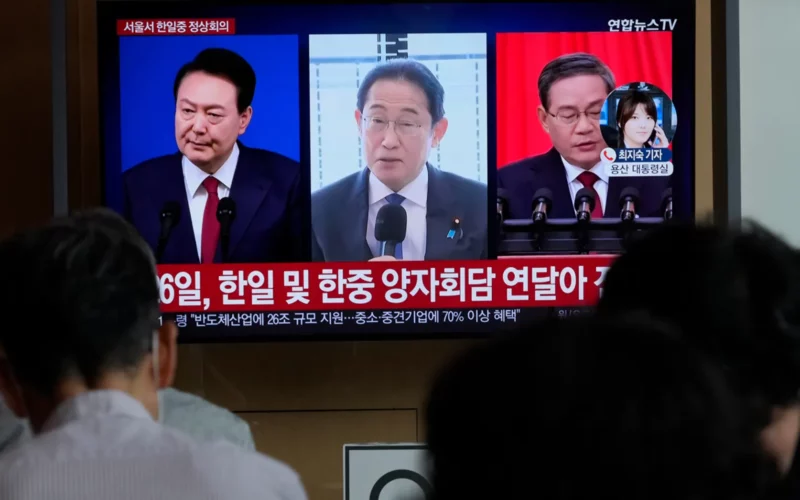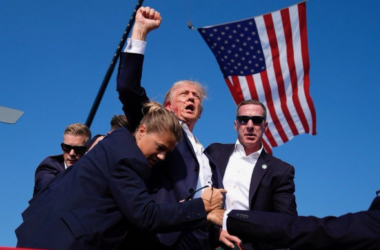Next week, leaders from South Korea, China, and Japan will convene in Seoul for their first trilateral meeting in over four years, aimed at revitalizing cooperation among the three nations, South Korea’s presidential office announced on Thursday.
Scheduled for Monday, the summit will bring together South Korean President Yoon Suk Yeol, Chinese Premier Li Qiang, and Japanese Prime Minister Fumio Kishida. This marks their first such meeting since December 2019, due to disruptions caused by the COVID-19 pandemic and complex regional relations.
According to Kim Tae-hyo, Seoul’s deputy national security director, the summit is intended to fully restore and normalize trilateral cooperation. While Chinese President Xi Jinping will not be attending, both Premier Li and Prime Minister Kishida are set to arrive in South Korea on Sunday. They will hold bilateral meetings with President Yoon and join a welcoming dinner banquet.
The leaders are expected to discuss a range of cooperative initiatives proposed by South Korea, including personnel exchanges, climate change, trade, health, technology, and disaster management. These discussions will culminate in a joint statement following the summit.
Additionally, the leaders will address regional and international political issues, strategies for responding to global crises, and ways to contribute to international peace.
Economically and culturally interconnected, South Korea, China, and Japan together account for about 25% of the global GDP. However, efforts to enhance trilateral cooperation have often been hindered by historical disputes and strategic competition, particularly involving China and the United States.
South Korea and Japan, both key U.S. military allies hosting a combined total of 80,000 American troops, have recently strengthened their trilateral security partnership with the U.S. in response to North Korea’s advancing nuclear program and China’s regional assertiveness. This move has angered both China and North Korea.
Historical tensions between South Korea and Japan, stemming from Japan’s colonial rule over Korea from 1910 to 1945, have fluctuated significantly. However, relations improved notably in 2023 as both countries sought to enhance cooperation against common challenges like North Korea’s nuclear ambitions and supply chain issues.
South Korea, Japan, and the U.S. aim to leverage China’s influence over North Korea to persuade Pyongyang to abandon its nuclear program. While China officially does not support North Korea’s nuclear ambitions, it is suspected of providing covert assistance to help the isolated nation remain afloat, seeing North Korea as a buffer against U.S. influence in the region.








